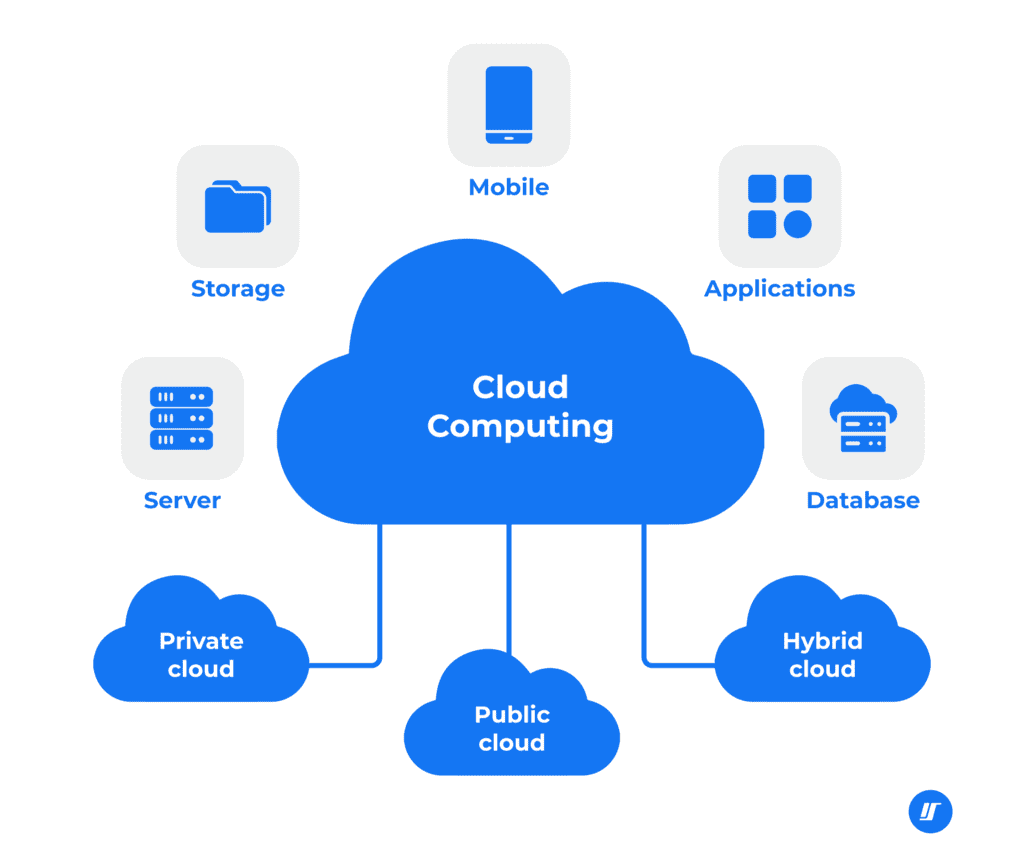Blitz News Digest
Stay updated with the latest trends and insights.
Cloud Computing: The Invisible Force Behind Your Favorite Apps
Discover how cloud computing powers your favorite apps and transforms everyday experiences. Uncover the invisible force behind digital innovation!
Understanding Cloud Computing: How It Powers Your Favorite Applications
Cloud computing is a technology that allows users to access and store data and applications on remote servers, rather than on local computers. This shift has revolutionized the way we use digital services, as it offers flexibility, scalability, and cost-effectiveness. When you use your favorite applications, whether it’s for streaming music, sharing photos, or collaborating on documents, you're likely using cloud computing without even realizing it. The underlying technology powers innovations in software as a service (SaaS), infrastructure as a service (IaaS), and platform as a service (PaaS), enabling developers and businesses to rapidly deploy and scale applications in a secure environment.
Moreover, the benefits of cloud computing extend beyond simple storage solutions. It supports seamless integration and synchronization across devices, allowing users to access their content from anywhere with an internet connection. Consider the following key advantages of cloud computing:
- Cost Efficiency: Reduce the need for expensive hardware and maintenance.
- Scalability: Easily scale up or down based on your needs.
- Automatic Updates: Benefit from continuous improvements without manual installations.
Therefore, understanding how cloud computing impacts your favorite applications can help you appreciate the convenience and power it brings to your daily digital interactions.

What Are the Key Benefits of Cloud Computing for Everyday Users?
Cloud computing has revolutionized the way we access and manage our data, offering significant benefits for everyday users. One of the primary advantages is the ability to access information from anywhere with an internet connection. This means you can work, share files, and collaborate with others seamlessly, whether you're at home, in a cafe, or on the go. Additionally, cloud services often provide automatic updates and backups, ensuring your data is always secure and up-to-date without the need for manual intervention.
Another key benefit of cloud computing is the cost-effectiveness it brings to individuals. Rather than investing in expensive hardware or software licenses, users can take advantage of subscription-based models that allow them to pay only for the resources they use. This flexibility makes it easier for everyday users to access powerful tools such as file storage, computing power, and software applications without breaking the bank. Furthermore, with cloud computing, users can scale their usage up or down as needed, making it an ideal solution for both personal and professional needs.
How Does Cloud Computing Ensure Security and Data Privacy for Apps?
Cloud computing has revolutionized the way applications handle security and data privacy. With its robust architecture, cloud providers implement advanced security measures, such as encryption, which protects data both in transit and at rest. This means that sensitive information remains secure from unauthorized access. Additionally, cloud services often utilize multi-factor authentication and regular security audits to further enhance the protection of user data, ensuring that only authorized personnel can access critical application functions.
Moreover, compliance with global regulations, such as GDPR and HIPAA, is inherently supported by reputable cloud providers. These certifications signal that the cloud infrastructure meets rigorous standards for data privacy and protection. By leveraging cloud computing, businesses can also implement thorough data access policies that monitor who accesses sensitive information and when, facilitating better control over data use and maintaining user trust. In essence, cloud computing not only fortifies security practices but also fosters an environment where data privacy is prioritized.